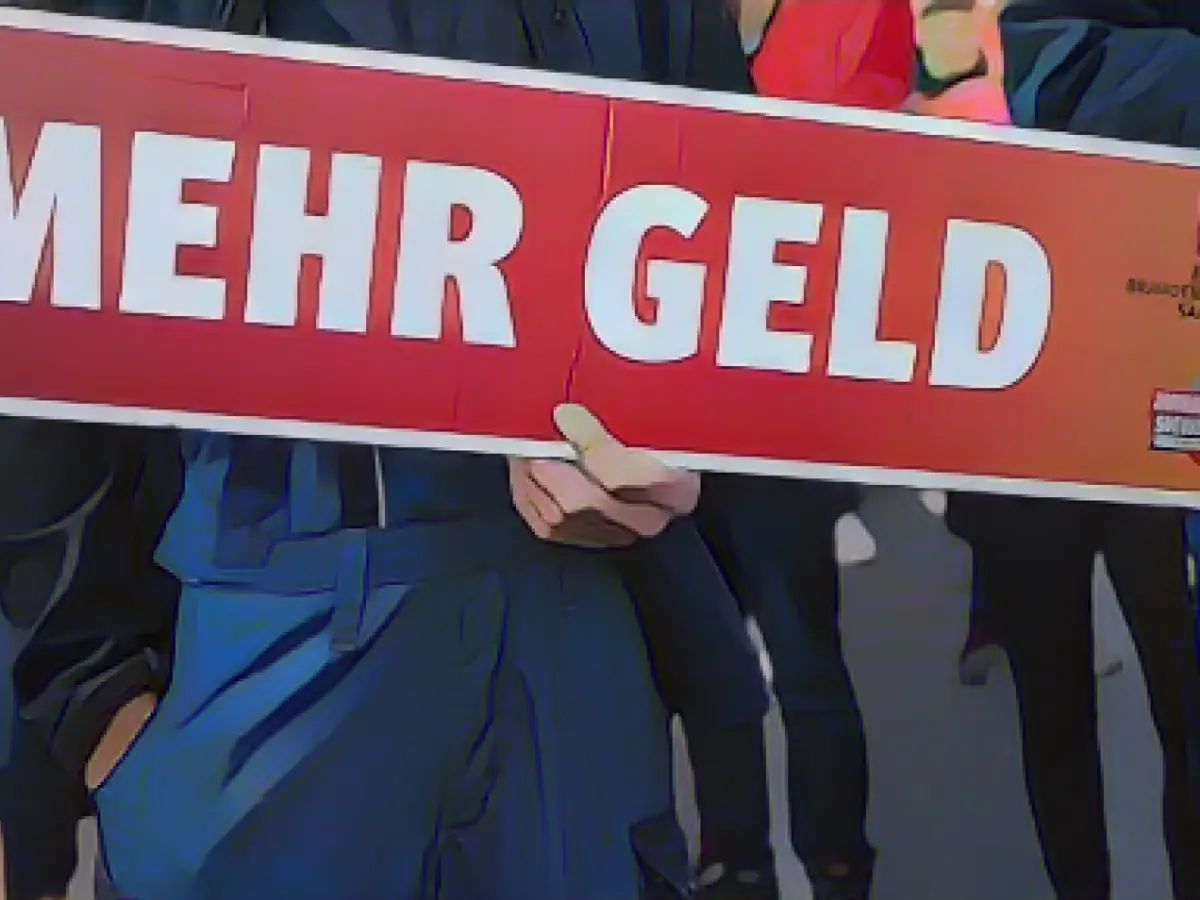Collective bargaining - 2024 collective bargaining round: shorter working hours, significantly more money
In 2024, people in Germany are once again facing a conflict-ridden year of collective bargaining. The high inflation in the meantime has left deep scars on the real wages of dependent employees and at the same time there are calls for shorter working hours in several sectors.
The trade unions are ready to renegotiate the working conditions for almost 12 million employees, as the WSI collective bargaining archive of the Hans Boeckler Foundation has compiled. In the coming year, the main focus will be on the construction industry, temporary work, the chemical industry and, in the fall, the metal and electrical industry, which alone represents 3.6 million employees.
In addition, there are a whole series of collective bargaining disputes that have been postponed from 2023 to the new year. These include the negotiations on retail and wholesale, which repeatedly led to warning strikes before Christmas.
"Money or free time" formula
Despite several warning strikes, the train drivers' union GDL has also not reached its goal at Deutsche Bahn, but has already set the course for further industrial action via a ballot, which could start on January 8. In what is likely to be his last collective bargaining dispute, outgoing GDL boss Claus Weselsky is primarily concerned with the weekly working hours in shift work, which are to be reduced from 38 to 35 hours, something that Deutsche Bahn has so far strictly rejected in view of the shortage of skilled workers. At DB's competitor Netinera (including Metronom, ODEG and Vlexx), the GDL has gone further: the gradual introduction of the 35-hour week will begin at the start of 2025.
In the iron and steel industry, the collective bargaining partners have created opportunities for shorter working weeks in the short term. The background to this is the imminent ecological restructuring of the energy-intensive industry, which the union believes will lead to significantly less work in the middle of the decade. The reduction in working hours in the steel industry is intended to keep skilled workers in the companies. There will be no full wage compensation as previously demanded.
For other key industrial sectors such as automotive and mechanical engineering, the demand for a 32-hour week is still a long way off. However, the new IG Metall chairwoman Christiane Benner sees the "short full-time working week" as an ideal to strive for, which would then also be easier for many women to manage. The "money or time off" formula, which Verdi, among others, has put on the agenda for Lufthansa ground staff for 2024, is already part of some collective agreements.
Higher pay demanded
In addition to working hours, the main demand is for significantly higher pay in order to slowly make up for the real wage losses of previous years. The Bundesbank has already registered significantly higher wage settlements than usual in 2023, but these were strongly influenced by the tax-free inflation compensation payments. However, even without this instrument, higher permanent wage increases were agreed than before hyperinflation, according to the November monthly report. However, at 3.0%, this increase in the summer quarter was only half a percentage point more than in the spring.
Despite the comparatively high wage settlements with an average nominal increase of 5.6%, many employees will remain below the general price increase in 2023. Thorsten Schulten, head of the WSI collective bargaining archive, explains that inflation was only exceeded in most cases once the individual tax and contribution advantages of the high one-off payments were taken into account. The need to catch up is immense: after three years of real wage losses, purchasing power is currently at the same level as in 2016.
Read also:
- Why there is still no EU funding for green Saar steel
- 3 billion Saar Fund is unconstitutional
- Lack of snow also opens up new opportunities for winter tourism
- Abrupt end to e-car subsidies
- The retail and wholesale sector, with its repeated calls for warning strikes before Christmas, is one of the numerous collective bargaining disputes postponed to the 2024 round.
- In the metallurgical industry, the collective bargaining partners have agreed to temporary shorter working hours, taking into account the industry's imminent ecological restructuring and the potential for reduced workload in the near future.
- In Frankfurt, where the metal and electrical industry plays a significant role, the GDL union's demands for shorter working hours have yet to be met by Deutsche Bahn.
- Despite the comparatively high wage settlements in 2023, inflation has left many employees with purchasing power levels similar to 2016.
- The German train drivers' union, GDL, has threatened a strike in early 2025, citing the ongoing dispute over reducing weekly working hours from 38 to 35 in shift work as the primary concern.
- The Turn of the year brings forth a renewed focus on collective bargaining in Germany, as numerous disputes are carried over from the previous year, including those in the retail trade sector.
- In Düsseldorf, the chemical industry is among the key sectors in the upcoming collective bargaining round and could face significant demands for higher pay and shorter working hours.
- The German trade unions, representing nearly 12 million employees, have compiled their demands for the 2024 collective bargaining round, which includes improved wages, shorter working hours, and tense negotiations across various sectors.
Source: www.stern.de








